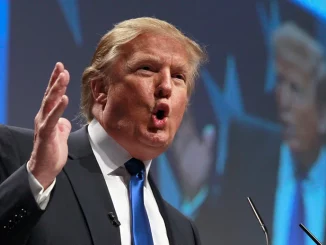
NATO staring defeat in the face in Ukraine, courtesy of The Communist.
| Published May 15, 2025
In a significant diplomatic development, the United States has reportedly opposed inviting Ukrainian President Volodymyr Zelensky to the upcoming NATO summit scheduled for June 24–25, 2025, in The Hague. This marks the first time since Russia’s full-scale invasion in 2022 that Ukraine’s leader will be absent from a NATO summit, either physically or virtually.
U.S. Opposition and Internal NATO Dynamics
According to reports from Italy’s ANSA news agency, citing unnamed diplomatic sources, the U.S. stance has influenced NATO’s decision-making process, leading to the exclusion of President Zelensky from the summit. This move is seen by some analysts as an attempt to appease U.S. President Donald Trump, who has expressed skepticism about Ukraine’s NATO membership aspirations and has had tense relations with Zelensky.
The decision has sparked concerns among European allies, with some viewing it as a concession to U.S. demands that could undermine NATO’s unity and its support for Ukraine amid ongoing conflict with Russia.
Broader Context
This development comes amid ongoing discussions within NATO about increasing defense spending and addressing emerging security challenges. The U.S. has proposed raising NATO’s defense spending target from 2% to 5% of GDP, a move that has garnered support from some allies, including Germany.
At the same time, the U.S. has suggested resuming the NATO-Russia Council as part of efforts to resolve the war in Ukraine, indicating a potential shift toward engaging Russia directly in diplomatic discussions.
As NATO prepares for its summit in The Hague, the decision to exclude President Zelensky underscores the complex interplay of alliance politics, national interests, and the ongoing challenges in addressing the conflict in Ukraine.
Implications of Excluding Zelensky from the NATO Summit
Implications for Ukraine and NATO
The exclusion of Ukraine’s president from the summit may signal a shift in NATO’s approach to the Ukraine-Russia conflict and its broader strategic priorities. It raises questions about the alliance’s commitment to Ukraine’s defense and its path toward potential membership.
Furthermore, the move could embolden Russia by suggesting divisions within NATO and a potential weakening of the alliance’s support for Ukraine. It also risks alienating Ukraine at a critical juncture in its efforts to resist Russian aggression and seek greater integration with Western institutions.
1. Strategic Realignment within NATO
-
U.S. Influence: The decision reveals the extent of U.S. influence over NATO decisions, with Washington’s opposition directly leading to Zelensky’s exclusion.
-
Transatlantic Tensions: European NATO members may see this as a capitulation to U.S. pressure, potentially straining alliance unity.
-
Uncertain NATO Commitment: It raises doubts about NATO’s long-term commitment to supporting Ukraine, which may affect allied military and economic aid.
2. Diplomatic Setback for Ukraine
-
Loss of Platform: Excluding Zelensky denies Ukraine a high-profile platform to advocate for support and integration into NATO.
-
Perception of Isolation: The move may be viewed by Russia as a sign of Ukraine’s diminishing diplomatic leverage in the West.
-
Public Discontent: Ukrainian citizens may feel betrayed, perceiving the decision as a lack of Western solidarity.
3. Empowerment of Russia
-
Psychological Advantage: Russia may interpret this as a sign of Western divisions, potentially strengthening its negotiating position in the conflict.
-
Diplomatic Narrative: Moscow can exploit this decision to argue that Ukraine is being sidelined by its allies.
4. Impact on U.S.-Ukraine Relations
-
Strained Relations: Zelensky and his government may feel sidelined by the U.S., leading to diplomatic friction.
-
Conditional Support: It signals that U.S. support is not unconditional and can be adjusted based on Washington’s strategic calculations.
5. Potential Shift in NATO Strategy
-
Focus on Defense Over Expansion: The U.S. push for increased NATO defense spending may indicate a shift from expanding NATO to strengthening its existing capabilities.
-
Diplomatic Engagement with Russia: Proposals to resume the NATO-Russia Council suggest a possible diplomatic track with Moscow, despite ongoing conflict.
Overall Takeaway:
The U.S.-led decision to exclude Ukrainian President Volodymyr Zelensky from the upcoming NATO summit reveals a critical shift in alliance dynamics, highlighting Washington’s dominant influence and its willingness to prioritize strategic calculations over symbolic solidarity. This move risks straining NATO’s unity, undermining Ukraine’s diplomatic standing, and emboldening Russia, signaling a potential recalibration of Western support for Kyiv at a pivotal moment in the ongoing conflict.
SOURCES: THE GATEWAY PUNDIT – US Opposes Ukraine’s Participation in Upcoming NATO Summit, Diplomatic Sources Say
THE KYIV INDEPENDENT – NATO reportedly not inviting Zelensky to The Hague summit to appease Trump
UKRAINSKA PRAVDA – US opposes inviting Zelenskyy to NATO summit in The Hague
IRAN FRONT PAGE – US opposes Ukraine attendance at NATO summit: Report





Be the first to comment